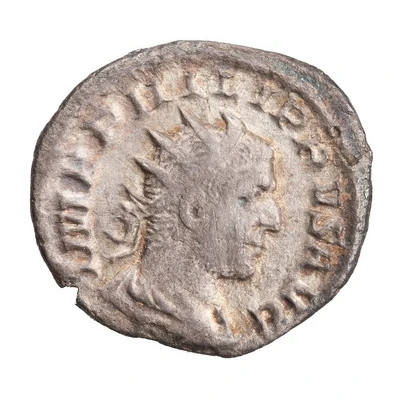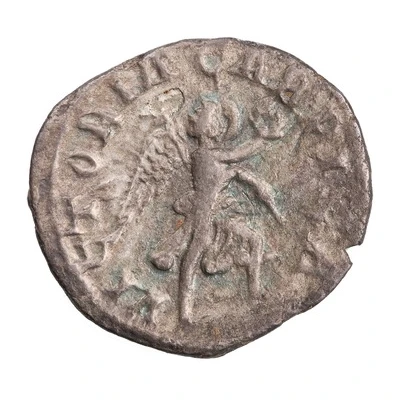Antoninianus - Philippus I IMP PHILIPPVS AVG
| Silver | - | - |
| Issuer | Rome › Roman Empire (27 BC - 395 AD) |
|---|---|
| Emperor | Philip I (Marcus Iulius Philippus) (244-249) |
| Type | Standard circulation coin |
| Years | 247-249 |
| Value | Antoninianus (1) |
| Currency | Antoninianus, Reform of Caracalla (AD 215 – 301) |
| Composition | Silver |
| Shape | Round (irregular) |
| Technique | Hammered |
| Demonetized | Yes |
| Updated | 2024-10-05 |
| Numista | N#282143 |
|---|---|
| Rarity index | 97% |
Reverse
Bust of Philip the Arab, radiate, draped, cuirassed, right.
Script: Latin
Lettering: IMP PHILIPPVS AVG
Translation:
Imperator Philippus Augustus.
Supreme commander (Imperator) Philip, emperor (Augustus).
Comment
Source:Online Coins of the Roman Empire (OCRE)
Interesting fact
The Antoninianus coin , which features Philippus I (IMP PHILIPPVS AVG) and was minted in Rome between 247-249 AD, is considered a rare and valuable coin among collectors. It's made of silver, which was a valuable and widely used metal during the Roman Empire. The coin's design features the emperor's image on one side and various symbols and letters on the other, including the Roman goddess Victory and the letters "IMP" which stand for "Imperator," or emperor. It's interesting to note that the Antoninianus coin was introduced during the reign of Emperor Caracalla in 215 AD, and it was meant to be a replacement for the denarius, which had been the standard Roman coin for centuries. The Antoninianus was valued at 2 denarii and was intended to help alleviate inflation and stabilize the Roman economy. However, the coin's value fluctuated over time and it eventually lost value, leading to its eventual replacement by other coins. Despite this, the Antoninianus remains a popular collector's item and a fascinating piece of Roman history.

